2025, 2023, 2020, 2019, 2018, 2017, 2016, 2015, 2014, 2012, 2011, 2010, 2009, 2008
2025

Creating Knowledge over Distance: The Role of Temporary Proximity
By: Harald Bathelt and Sebastian Henn
The prime goal of Creating Knowledge over Distance is to show that economic knowledge creation fundamentally depends on, benefits from, and is structured by temporary geographical proximity—that is, by economic actors meeting in person to discuss business opportunities, problems, and solutions face to face. During the Covid-19 pandemic, personal meetings often had to be reduced or were replaced by virtual meetings, leading many observers to assume a fundamental reconfiguration of economic life in the future. While communication patterns certainly changed during this period, the agenda in this book is to demonstrate that the face-to-face meetings investigated across a sequence of chapters are unlikely to be fully substituted by distant interactions, and may even become more important over time. The argument systematically analyses three configurations of knowledge transfers over distance: (1) international community gatherings, such as trade fairs, conventions, and conferences, (2) mobile business practices, including intra-firm business coordination, producer–user meetings, and inter-firm negotiations, as well as (3) transnational networks, related to transnational corporations and transnational migrant firms.
2023
 Protecting the Prairies: Lorne Scott and the Politics of Conservation
Protecting the Prairies: Lorne Scott and the Politics of Conservation
By Andrea Olive
Grasslands are among the richest, most biodiverse ecosystems on the planet, and they are crucial in the fight against climate change. Unfortunately, since 1970 Canada has lost more than 40 percent of its grasslands, and less than 15 percent of Saskatchewan’s grasslands exist today. The province has some of the highest CO2 and methane emissions per capita and virtually no environmental regulations. How did we allow the grasslands to become one of the most endangered ecosystems on Earth?

Transformative Politics of Nature: Overcoming Barriers to Conservation in Canada
Edited by Andrea Olive, Chance Finegan and Karen F. Beazley
Transformative Politics of Nature highlights the most significant barriers to conservation in Canada and discusses strategies to confront and overcome them. Featuring contributions from academics as well as practitioners, the volume brings together the perspectives of both Indigenous and non-Indigenous experts on land and wildlife conservation, in a way that honours and respects all peoples and nature.
2020
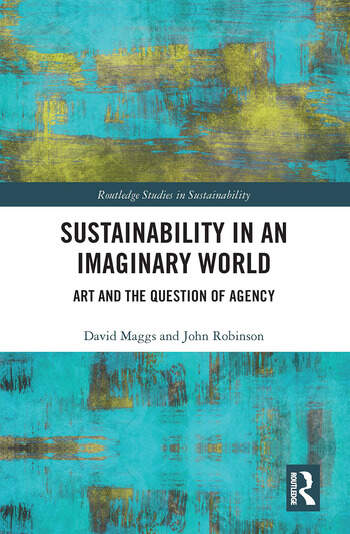 Sustainability in an Imaginary World: Art and the Question of Agency
Sustainability in an Imaginary World: Art and the Question of Agency
By David Maggs, John Robinson
Over the past decade, interest in art’s agency has ballooned as an increasing number of fields turn to the arts with ever-expanding expectations. Yet just as art is being heralded as a magic bullet of social change, research is beginning to throw cautionary light on such enthusiasm, challenging the linear, prescriptive, instrumental expectations such transdisciplinary interactions often imply. In this, art finds itself at a treacherous crossroads, unable to turn a deaf ear to calls for help from an increasing number of ostensibly non-aesthetic fields, yet in answering such prescriptive urgencies, jeopardizing the very power for which its help was sought in the first place.
2019
 A Research Agenda for Migration and Health
A Research Agenda for Migration and Health
Edited by K. Bruce Newbold and Kathi Wilson
Evidenced by Europe’s refugee crisis and the movement of undocumented workers into the US, international migration has emerged as one of the most pressing issues faced by national and regional governments. The health impacts of migration can be significant and multifaceted, with access to health care often denied or limited, with immigrants experiencing declining health. The health of more vulnerable groups, including women and the disabled, is further compromised. A Research Agenda for Migration and Health provides insight into key research directions and scholarship, with topics including food security, disability, cultural safety, and health care access.
2018
 The Elgar Companion to Innovation and Knowledge Creation
The Elgar Companion to Innovation and Knowledge Creation
Edited by Harald Bathelt, Patrick Cohendet, Sebastian Henn and Laurent Simon
The Elgar Companion to Innovation and Knowledge Creation provides a comprehensive overview and critical evaluation of existing conceptualizations and new developments in innovation research. It draws on multiple perspectives of innovation, knowledge and creativity from economics, geography, history, management, political science and sociology. The Companion brings together leading scholars to reflect upon innovation as a concept (Part I), innovation and institutions (Part II), innovation and creativity (Part III), innovation, networking and communities (Part IV), innovation in permanent spatial settings (Part V), innovation in temporary, virtual and open settings (Part VI), innovation, entrepreneurship and market making (Part VII), and the governance and management of innovation (Part VIII).
Wirtschaftsgeographie: Ökonomische Beziehungen in räumlicher Perspektive (Economic Geography: Economic Relations in Spatial Perspective)
By Harald Bathelt and Johannes Glückler
Wirtschaftsgeographie (Economic Geography) is the most extensive economic geography text and source book on the market. It systematically introduces and explains classic and contemporary theories in the field of economic geography and related social sciences and leads a critical discussion. Starting with spatial disparities and inequality, the book develops in 15 chapters and over 500 pages a specific relational perspective of economic action and interaction. The book covers a wide range of topics in 6 parts with 15 chapters: 1 Introduction; 2 Traditional Regional Science Perspectives; 3 Interaction and Institutions; 4 Organization; 5 Evolution; 6 Innovation.
2017
Feminist Spaces: Gender and Geography in Global Contexts
By Sharlene Mollet (Co-Editor)
Feminist Spaces introduces students and academic researchers to major themes and empirical studies in feminist geography. It examines new areas of feminist research including: embodiment, sexuality, masculinity, intersectional analysis, and environment and development. In addition to considering gender as a primary subject, this book provides a comprehensive overview of feminist geography by highlighting contemporary research conducted from a feminist framework which goes beyond the theme of gender to include issues such as social justice, activism, (dis)ability, and critical pedagogy.
Sustainability Policy, Planning, and Gentrification in Cities
By Susannah Bunce
Sustainability Policy, Planning and Gentrification in Cities explores the growing convergences between urban sustainability policy, planning practices and gentrification in cities. Via a study of governmental policy and planning initiatives and informal, community-based forms of sustainability planning, the book examines the assemblages of actors and interests that are involved in the production of sustainability policy and planning and their connection with neighbourhood-level and wider processes of environmental gentrification.
The Organization of Cities: Initiative, Ordinary Life, and the Good Life
By John R. Miron
This book focuses on the relationship between the state and economy in the development of cities. It reviews and reinterprets fundamental theoretical models that explain how the operation of markets in equilibrium shapes the scale and organization of the commercial city in a mixed market economy within a liberal state. These models link markets for the factors of production, markets for investment and fixed capital formation, markets for transportation, and markets for exports in equilibrium both within the urban economy and the rest of the world. In each case, the model explains the urban economy by revealing how assumptions about causes and structures lead to predictions about scale and organization outcomes. By simplifying and contrasting these models, this book proposes another interpretation: that governance and the urban economy are outcomes negotiated by political actors motivated by competing notions of commonwealth and the individual desire for wealth and power. The book grounds its analysis in economic history, explaining the rise of commercial cities and the emergence of the urban economy. It then turns to factors of production, export, and factor markets, introducing and parsing the Mills model, breaking it down into its component parts and creating a series of simpler models that can better explain the significance of each economic assumption. Simplified models are also presented for real estate and fixed capital investment markets, transportation, and land use planning. The book concludes with a discussion of linear programming and the Herbert- Stevens and the Ripper-Varaiya models. A fresh presentation of the theories behind urban economics, this book emphasizes the links between state and economy and challenges the reader to see its theories in a new light. As such, this book will be of interest to scholars, students, and practitioners of economics, public policy, public administration, urban policy, and city and urban planning.
2016
Calculating Property Relations: Chicago’s Wartime Industrial Mobilization, 1940-1950
By Robert Lewis
Combining theories of calculation and property relations and using an array of archival sources, this book focuses on the building and decommissioning of state-owned defense factories in World War II–era Chicago. Robert Lewis’s rich trove of material—drawn from research on more than six hundred federally funded wartime industrial sites in metropolitan Chicago—supports three major conclusions. First, the relationship of the key institutions of the military-industrial complex was refashioned by their calculative actions on industrial property. The imperatives of war forced the federal state and the military to become involved in industrial matters in an entirely new manner. Second, federal and military investment in defense factories had an enormous effect on the industrial geography of metropolitan Chicago. The channeling of huge lumps of industrial capital into sprawling plants on the urban fringe had a decisive impact on the metropolitan geographies of manufacturing. Third, the success of industrial mobilization was made possible through the multiscale relations of national and locational interaction. National policy could only be realized by the placing of these relations at the local level.
Domains of Freedom: Justice, Citizenship and Social Change in South Africa
By Thembele Kepe (Co-Editor)
This collection acknowledges the enormous expectations placed on the shoulders of the South African revolution to produce an alternative political regime in response to apartheid and global neo-liberalism. It does not lament the inability of South Africa’s democracy to provide deeper freedoms, or suggest that since it hasn’t this is some form of betrayal. Freedom is made possible and/or limited by local political choices, contemporary global conditions and the complexities of social change. This book explores the multiplicity of spaces within which the dynamics of social change unfold, and the complex ways in which power is produced and reproduced. In this way, it seeks to understand the often non-linear practices through which alternative possibilities emerge, the lengthy and often indirect ways in which new communities are imagined and new solidarities are built. In this sense, this book is not a collection of hope or despair. Nor is it a book that seeks to situate itself between these two poles. Instead it aims to read the present historically, critically and politically, and to offer insights into the ongoing, iterative and often messy struggles for freedom.
2015
 Temporary Knowledge Ecologies – The Rise of Trade Fairs in the Asia-Pacific Region
Temporary Knowledge Ecologies – The Rise of Trade Fairs in the Asia-Pacific Region
Edited by Harald Bathelt and Gang Zeng
The development of trade fairs in the Asia-Pacific region has been highly uneven,with large differences between industries, cities and countries. Based on a knowledge perspective, this book is the first of its kind to connect economic growth with the rise and development of trade fairs. Using country-specific case studies, the contributors identify three key areas of exploration: knowledge generation and transfer processes through trade fairs, interrelationships between industrial and trade fair specializations, and linkages between economic development, industrial policy and trade fair dynamics. They demonstrate that trade fairs in
the Asia-Pacific region have evolved from transaction-oriented places to knowledge-based and relational spaces.
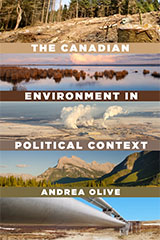 Canadian Environment in Political Context
Canadian Environment in Political Context
By Andrea Olive
The Canadian Environment in Political Context is an introduction to environmental politics designed to explain and explore how environmental policy is made inside the Canadian political arena. The book begins with a brief synopsis of environmental quality across Canada before moving on to examine political institutions and policy making, the history of environmentalism in Canada, and crucial issues including wildlife policy, pollution, climate change, Aboriginals and the environment, and Canada’s North. The book ends with a discussion of the environmental challenges and opportunities that Canada faces in the twenty-first century.
2014
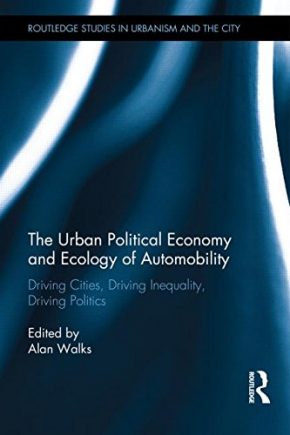 The Urban Political Economy and Ecology of Automobility – Driving Cities, Driving Inequality, Driving Politics
The Urban Political Economy and Ecology of Automobility – Driving Cities, Driving Inequality, Driving Politics
Edited by Alan Walks
This volume provides a holistic and reflexive account of the role played by automobility in producing, reproducing, and differentiating social, economic and political life in the contemporary city, as well as the role played by the city in producing and reproducing auto-mobile inequalities. The first section, titled Driving Vulnerability, deals with issues of global importance related to economic, social, financial, and environmental sustainability and resilience, and socialization. The second section, Driving Inequality, is concerned with understanding the role played by automobility in producing urban socio-spatial inequalities, including those rooted in accessibility to work, migration status and ethnic concentration, and new measures of mobility-based inequality derived from the concept of effective speed. The third section, titled, Driving Politics, explores the politics of mobility in particular places, with an eye to demonstrating both the relevance of the politics of mobility for influencing and reinforcing actually existing neoliberalisms, and the kinds of politics that might allow for reform or restructuring of the auto-mobile city into one that is more socially, politically and environmentally just. In the conclusion to the book Walks draws on the findings of the other chapters to comment on the relationship between automobility, neoliberalism and citizenship, and to lay out strategies for dealing with the urban car system.
Trade Shows in the Globalizing Knowledge Economy
By Harald Bathelt, Francesca Golfetto and Diego Rinallo
Trade Shows in the Globalizing Knowledge Economy presents a comprehensive overview of the important role played by trade shows in the globalising knowledge economy. Traditionally conceived as marketing tools, the book conceptualises these events as temporary clusters that fundamentally facilitate the creation and diffusion of knowledge across geographical distances. This opens up new perspectives on trade shows, which have been under-theorised and under-studied in the past. The book systematically explains the nature, extent, and structure of interaction and learning processes at trade shows and explains how they have become major building blocks in globalisation processes. Based on empirical evidence from numerous trade shows in different industries and geographical contexts, the book explores (i) the knowledge acquisition and release processes of trade show exhibitors and visitors, (ii) the content of the knowledge circulated and co-produced by trade show participants, and (iii) the strategies through which trade show organisers, exhibitors, and visitors shape related learning processes.
2012
 Faith Based: Religious Neoliberalism and the Politics of Welfare in the United States
Faith Based: Religious Neoliberalism and the Politics of Welfare in the United States
By Jason Hackworth
Faith Based explores how the Religious Right has supported neoliberalism in the United States, bringing a particular focus to welfare—an arena where conservative Protestant politics and neoliberal economic ideas come together most clearly. Through case studies of gospel rescue missions, Habitat for Humanity, and religious charities in post-Katrina New Orleans, Jason Hackworth describes both the theory and practice of faith-based welfare, revealing fundamental tensions between the religious and economic wings of the conservative movement. Hackworth begins by tracing the fusion of evangelical religious conservatism and promarket, antigovernment activism, which resulted in what he calls “religious neoliberalism.” He argues that neoliberalism—the ideological sanctification of private property, the individual, and antistatist politics—has rarely been popular enough on its own to promote wide change. Rather, neoliberals gain the most traction when they align their efforts with other discourses and ideas. The promotion of faith-based alternatives to welfare is a classic case of coalition building on the Right. Evangelicals get to provide social services in line with Biblical tenets, while opponents of big government chip away at the public safety net. Though religious neoliberalism is most closely associated with George W. Bush’s Office of Faith-Based and Neighborhood Partnerships, the idea predates Bush and continues to hold sway in the Obama administration. Despite its success, however, Hackworth contends that religious neoliberalism remains an uneasy alliance—a fusion that has been tested and frayed by recent events.
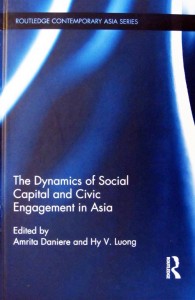 The Dynamics of Social Capital and Civic Engagement in Asia
The Dynamics of Social Capital and Civic Engagement in Asia
By Amrita Daniere & Hy Van Luong
The purpose of this volume is to highlight the impacts on civic engagement of social capital, and its various component parts (trust, norms, networks and associations), in diverse parts of Asia. Addressing the pressing need for improved governance within the spatial, political and cultural realities in the rapidly transforming landscapes of Asia, the contributors to the book bring together interdisciplinary work that focuses on the ways in which civic engagement can link with social capital building. The goal of this volume is to inspire policy that recognizes that a vibrant society with access to rich stores of positive social capital requires civil society, alternate civilities and the state. The result is a dialogue on the interplay of social capital and civic engagement in socio-political contexts quite different from those found in the West. This book contributes to current discussions about the nature of social relations and their connection to politics and change and offers a unique lens into the validity of these important concepts in contemporary research across a variety of Asian settings. It will be of interest to social scientists across the board, especially those with an interest in Asia and Asian development.
2011
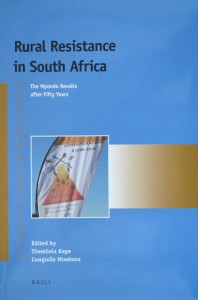 Rural Resistance in South Africa
Rural Resistance in South Africa
By Thembela Kepe & Lungisile Ntsebeza
Much has been written about anti-apartheid resistance by the marginalized people of South Africa, as well as its violent repression by security forces in urban areas (e.g. Sharpeville massacre; Soweto riots). Very little attention has been paid to resistance by rural people. The Mpondo Revolts, which began in the 1950s and reached a climax in 1960, rank among the most significant rural resistances in South Africa. Here Mpondo villagers emphatically rejected the introduction of Bantu Authorities and unpopular rural land use planning that meant loss of land. The volume presents a fresh understanding of the uprising; as well as its meaning and significance then and now, particularly relating to land, rural governance, party politics and the agency of the marginalized.
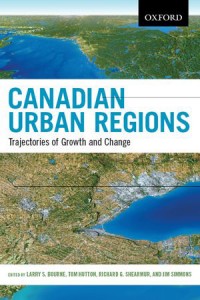 Canadian Urban Regions
Canadian Urban Regions
Edited by Larry S. Bourne, Tom Hutton, Richard Shearmur and Jim Simmons
Bringing together some of the most respected scholars in the discipline, Canadian Urban Regions: Trajectories of Growth and Change is an innovative exploration of current trends and developments in urban geography. Combining theoretical perspectives with contemporary insights, the text reveals how the economic welfare of Canada is increasingly determined by the capacity of its cities to function as sites of innovation, creativity, skilled labour formation, specialized production, and global-local interaction. The text moves from building a contextual framework, on to practical case studies about evolving political, economic, and urban changes in five of Canada’s major cities – Montreal, Ottawa, Toronto, Calgary, and Vancouver – before finally moving on to a discussion of the future of the discipline.
Beyond Territory: Dynamic Geographies of Knowledge Creation, Diffusion and Innovation
Edited by Harald Bathelt, Maryann Feldman and Dieter F. Kogler
Beyond Territory discusses new trends in the dynamic geography of innovation and argues that in an era of increasing globalization, two trends seem quite dominant: rigid territorial models of innovation, and localized configurations of innovative activities. Rather than focusing on established concepts and theories, the book aims to question narrow explanations, rigid territorializations, and simplistic policy frameworks; it provides evidence that innovation, while not exclusively dependent on regional contexts, can be influenced by place-specific attributes.
The Relational Economy: Geographies of Knowing and Learning
By Harald Bathelt and Johannes Glückler
The Relational Economy synthesizes theories from across the social sciences with empirical research and case studies in order to answer these questions and to demonstrate how people and firms organize economic action and interaction across local, national, and global flows of knowledge and innovation. It is structured in four clear parts: Part I: Foundations of Relational Thinking; Part II: Relational Clusters of Knowledge; Part III: Knowledge Circulation Across Territories; Part IV: Toward a Relational Economic Policy? The employs a novel relational framework, which recognizes values, interpretative frameworks, and decision-making practices as subject to the contextuality of the social institutions that characterize the relationships between the human agents. It will be a valuable resource for academics, researchers, and graduate students across the social sciences, and practitioners in clusters policy.
2010
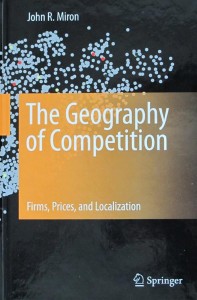 The Geography of Competition (Firms, Prices, and Localizaztion)
The Geography of Competition (Firms, Prices, and Localizaztion)
By John Miron
This book provides a comprehensive, up-to-date, and expert synthesis of location theory. What are the impacts of a firm’s geographic location on the locations of customers, suppliers, and competitors in a market economy? How, when, and why does this result in the clustering of firms in space? When and how is society made better or worse off as a result? This book uses dozens of locational models to address aspects of these three questions. Classical location problems considered include Greenhut-Manne, Hitchcock-Koopmans, and Weber-Launhardt. The book reinterprets competitive location theory, focusing on the linkages between Walrasian price equilibrium and the localization of firms. It also demonstrates that competitive location theory offers diverse ideas about the nature of market equilibrium in geographic space and its implications for a broad range of public policies, including free trade, industrial policy, regional development, and investment in infrastructure. With an extensive bibliography and fresh, interdisciplinary approach, the book will be an invaluable reference for academics and researchers with an interest in regional science, economic geography, and urban planning, as well as policy advisors, urban planners, and consultants.
 Land, Memory, Reconstruction, and Justice: Perspectives of Land Claims in South Africa
Land, Memory, Reconstruction, and Justice: Perspectives of Land Claims in South Africa
By Cherryl Walker, Anna Bohlin, Ruth Hill & Thembela Kepe
In South Africa land is one of the most significant and controversial topics. Land restitution has been a complex, multidimensional process that has failed to meet the expectations with which it was initially launched in 1994. Ordinary citizens, policymakers, and analysts have begun to question progress in land reform in the years since South Africa’s transition to democracy. Land, Memory, Reconstruction, and Justice brings together a wealth of topical material and case studies by leading experts in the field who present a rich mix of perspectives from politics, sociology, geography, social anthropology, law, history, and agricultural economics. The collection addresses both the material and the symbolic dimensions of land claims, in rural and urban contexts, and explores the complex intersection of issues confronting the restitution program, from the promotion of livelihoods to questions of rights, identity, and transitional justice. A valuable contribution to the field of land and agrarian studies, both in South Africa and internationally, it is undoubtedly the most comprehensive treatment to date of South Africa’s postapartheid land claims process and will be essential reading for scholars and students of land reform for years to come.
 Energy Efficiency and the Demand for Energy Services
Energy Efficiency and the Demand for Energy Services
By L.D. Danny Harvey
Reducing and managing humanity’s demand for energy is a fundamental part of the effort to mitigate climate change. In this, the most comprehensive textbook ever written on the subject, L.D. Danny Harvey lays out the theory and practice of how things must change if we are to meet our energy needs sustainably.
The book begins with a succinct summary of the scientific basis for concern over global warming, then outlines energy basics and current patterns and trends in energy use. This is followed by a discussion of current and advanced technologies for the generation of electricity from fossil fuels. The book then considers in detail how energy is used, and how this use can be dramatically reduced, in the following end-use sectors: buildings, transportation, industry, food and agriculture, and municipal services.
The findings from these sector-by-sector assessments are then applied to generate scenarios of how global energy demand could evolve over the coming decades with full implementation of the identified and economically-feasible energy-saving potential. The book ends with a brief discussion of policies that can be used to reduce energy demand, but also addresses the limits of technologically-based improvements in efficiency in moderating demand and of the need to re-think some of our underlying assumptions concern ends with a brief discusing what we really need. Along with its companion volume on C-free energy supply, and accompanied by extensive supplementary online material, this is an essential resource for students and practitioners in engineering, architecture, environment and energy related fields.
 Carbon-Free Energy Supply
Carbon-Free Energy Supply
By Danny Harvey
Transforming our energy supplies to be more sustainable is seen by many to be the biggest challenge of our times. In this comprehensive textbook, L.D. Danny Harvey sets out in unprecedented detail the path we must take to minimize the effects that the way we harness energy will have on future climate change.
The book opens by highlighting the importance of moving to low carbon technologies for generation, then moves on to explain the functioning, potential and social/environmental issues around: solar energy, wind energy, biomass energy, geothermal energy, hydroelectric power, ocean energy, and nuclear energy.
It also covers the options for carbon capture and storage and the contexts in which low carbon energy can best be utilized (potential for community integrated systems, and the hydrogen economy). The book closes with scenarios that combine the findings from its companion volume (concerning the potential for limiting future energy demand) with the findings from this volume (concerning the cost and potential of C-free energy systems) to generate scenarios that succeed in limiting future atmospheric CO2 concentration to no more than 450 ppmv. Detailed yet accessible, meticulously researched and reviewed, this work constitutes an indispensible textbook and reference for students and practitioners in sustainable energy and engineering.
 The Contours of America’s Cold War
The Contours of America’s Cold War
By Matthew Farish
In The Contours of America’s Cold War, Matthew Farish explores new ways of conceptualizing space as part of post-World War II American militarism. He demonstrates how the social sciences were militarized in the early Cold War period, producing spatial knowledge that was of immediate use to the state as it sought to expand its reach across the globe.
Geographic knowledge generated for the Cold War was a form of power, and it was given an urgency in the panels, advisory boards and study groups established to address the challenges of an atomic world. He investigates how the scales of the city, the continent, the region, the globe and, by extension, outer space, were brought together as strategic spaces or categories that provided a cartographic orientation for the Cold War and influenced military deployments, diplomacy, espionage and finance.
Farish analyzes the surprising range of knowledge production involved in claiming and classifying American space. Backed by military and intelligence funding, physicists, policy makers, soldiers and social scientists came together to study and shape the United States and its place in a divided world.
 Love in the Time of AIDS: Inequality, Gender, and Rights in South Africa
Love in the Time of AIDS: Inequality, Gender, and Rights in South Africa
By Mark Hunter
In some parts of South Africa, more than one in three people are HIV positive. Love in the Time of AIDS explores transformations in notions of gender and intimacy to try to understand the roots of this virulent epidemic. By living in an informal settlement and collecting love letters, cell phone text messages, oral histories, and archival materials, Mark Hunter details the everyday social inequalities that have resulted in untimely deaths. Hunter shows how first apartheid and then chronic unemployment have become entangled with ideas about femininity, masculinity, love, and sex and have created an economy of exchange that perpetuates the transmission of HIV/AIDS. This sobering ethnography challenges conventional understandings of HIV/AIDS in South Africa.
 Progress in Spatial Analysis: Methods and Applications
Progress in Spatial Analysis: Methods and Applications
Edited by Antonio Páez, Ron N. Buliung, Julie Le Gallo and Sandy Dall’erba
Space is increasingly recognized as a legitimate factor that influences many processes and conceptual frameworks, including notions of spatial coherence and spatial heterogeneity that have been demonstrated to provide substance to both theory and explanation. The potential and relevance of spatial analysis is increasingly understood by an expanding sphere of cogent disciplines that have adopted the tools of spatial analysis. This book brings together major new developments in spatial analysis techniques, including spatial statistics, econometrics, and spatial visualization, and applications to fields such as regional studies, transportation and land use, political and economic geography, population and health. Establishing connections to existing and emerging lines of research, the book also serves as a survey of the field of spatial analysis and its links with related areas.
2009
 Environment: The Science Behind the Stories (Canadian Edition)
Environment: The Science Behind the Stories (Canadian Edition)
By Jay Withgott, Scott Brennan and Barbara Murck
This is the first Canadian edition of the very successful American environmental science textbook by Withgott and Brennan. The book gives a truly Canadian perspective on environmental science, with a particular focus on the groundbreaking work being done by Canadian environmental scientists in a variety of disciplines. One unique feature of this book is an entire chapter devoted to Campus Sustainability initiatives across Canada.
 The Politics of Civic Space in Asia: Building Urban Communities
The Politics of Civic Space in Asia: Building Urban Communities
Edited by Amrita Daniere and Mike Douglass
This book explores how and why civic spaces are used by different communities in Asia and what role urban governance and public participation play in the support or demise of communities. Using case studies of contemporary city life throughout, the contributors provide insights into the importance and value of civic space, arguing that civic spaces provide not only the physical sites for civil society to function autonomously; but also provide a sense of place in the form of identity, meaning, memory, history and linkages with the wider world.
Each chapter focuses on the production of and access to civic spaces in a particular Asian city, as well as examples of successes and failures that can inform urban policy regarding inclusive, tolerant and socially vibrant city life through focused attention on the provision and continuity of civic space.
This book is designed to provide information to policymakers, researchers and students of the developing world regarding the importance and value of civic space in terms of creating and supporting urban communities. As such, The Politics of Civic Space in Asia will be an invaluable resource for those interested in urban planning, urban design, public policy and political science, as well as Asian studies more generally.
2008
 Chicago Made: Factory Networks in the Industrial Metropolis
Chicago Made: Factory Networks in the Industrial Metropolis
By Robert Lewis
Central to Chicago Made’s story is the industrial inspection tours led between 1911 and 1914. A kind of mock-Geotrip, each tour was led by an influential elite who promoted industrial expansion outside Chicago’s downtown (the Loop) and into what was then seen as the prairie wastelands. Attended by business leaders in transportation, utilities, real estate and an endless variety of manufacturing firms, the tours capitalized on their massively intricate manufacturing network to alter the industrial, social and physical landscape with more control and purpose than ever used before, and on a scale second only to New York.





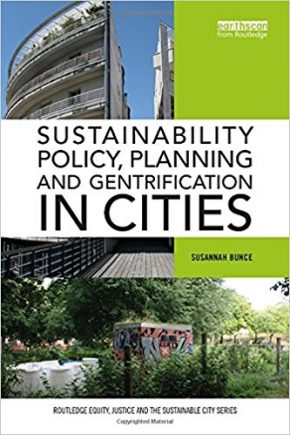
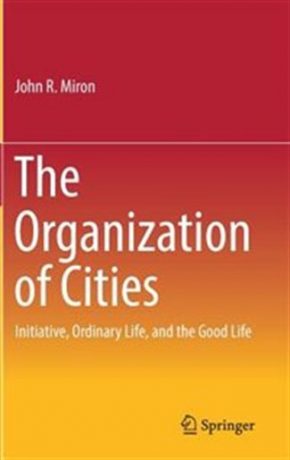

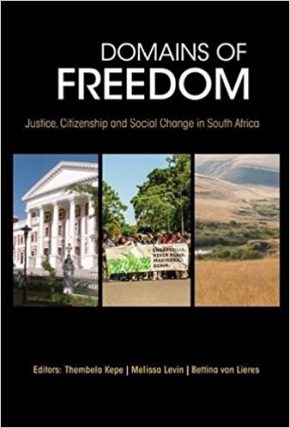

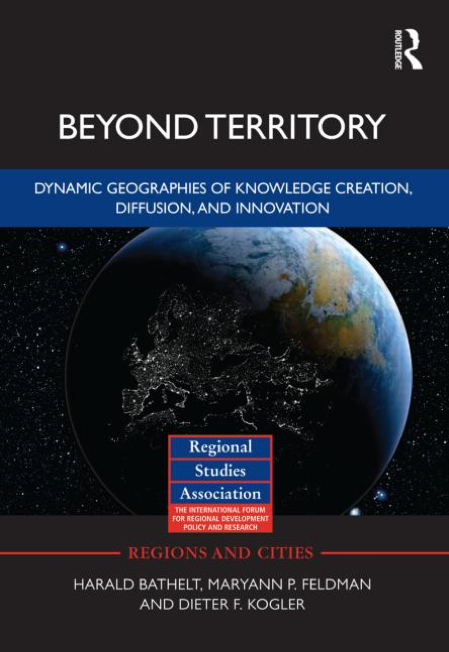
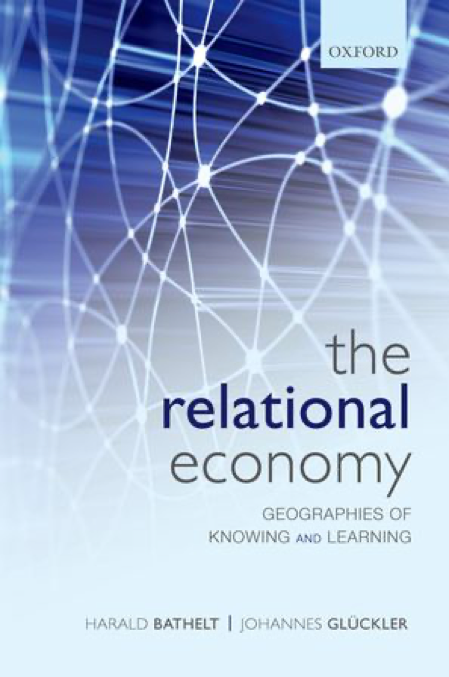
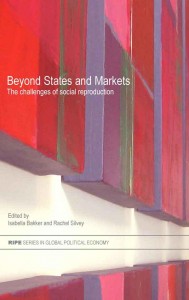 Beyond States and Markets: The Challenges of Social Reproduction
Beyond States and Markets: The Challenges of Social Reproduction